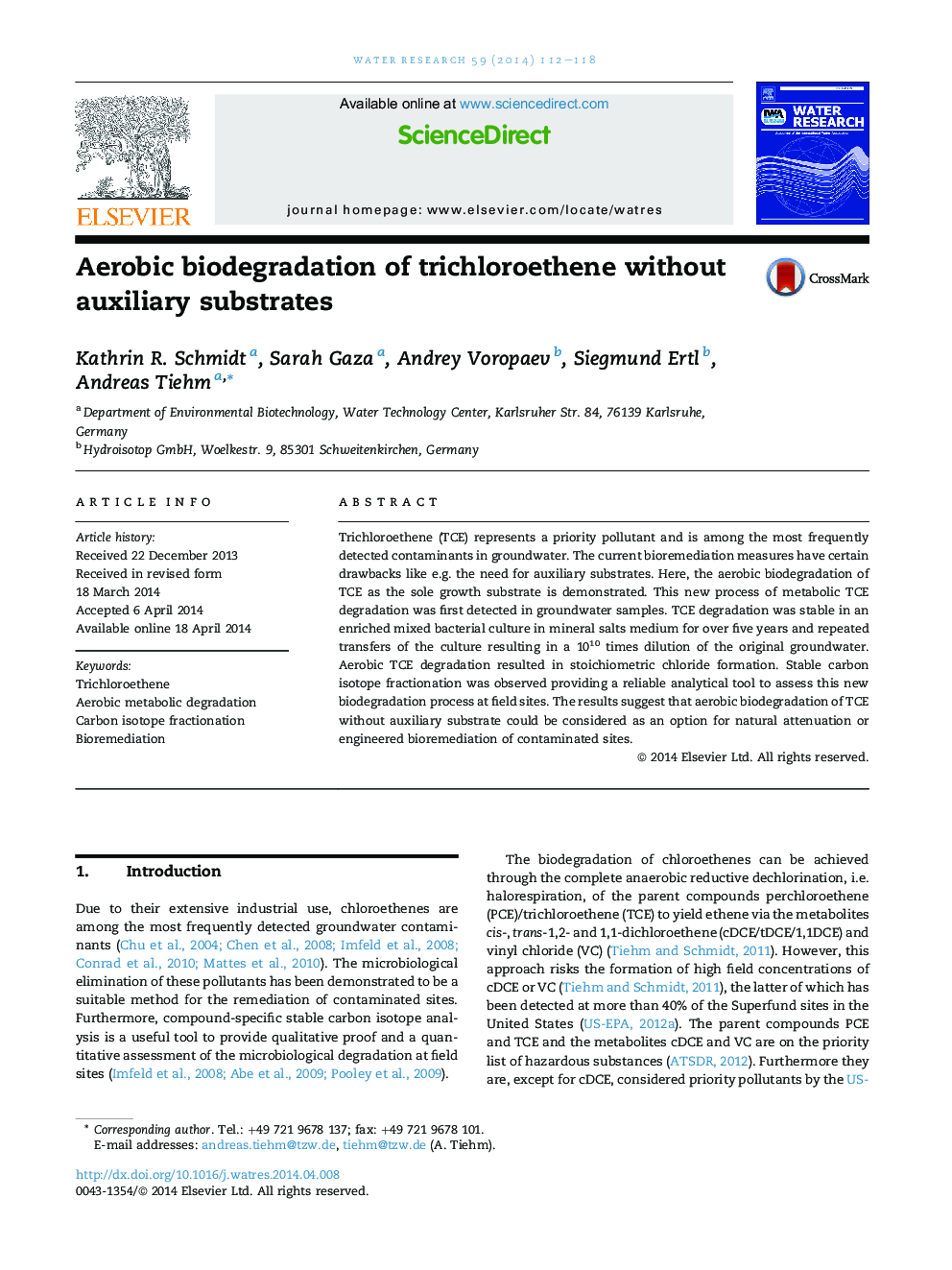| Article ID | Journal | Published Year | Pages | File Type |
|---|---|---|---|---|
| 4481531 | Water Research | 2014 | 7 Pages |
•Aerobic TCE degradation without auxiliary substrates in groundwater samples.•Long-term aerobic biodegradation of TCE in mineral salts medium.•Stoichiometric chloride release and stable carbon isotope fractionation.
Trichloroethene (TCE) represents a priority pollutant and is among the most frequently detected contaminants in groundwater. The current bioremediation measures have certain drawbacks like e.g. the need for auxiliary substrates. Here, the aerobic biodegradation of TCE as the sole growth substrate is demonstrated. This new process of metabolic TCE degradation was first detected in groundwater samples. TCE degradation was stable in an enriched mixed bacterial culture in mineral salts medium for over five years and repeated transfers of the culture resulting in a 1010 times dilution of the original groundwater. Aerobic TCE degradation resulted in stoichiometric chloride formation. Stable carbon isotope fractionation was observed providing a reliable analytical tool to assess this new biodegradation process at field sites. The results suggest that aerobic biodegradation of TCE without auxiliary substrate could be considered as an option for natural attenuation or engineered bioremediation of contaminated sites.
Graphical abstractFigure optionsDownload full-size imageDownload high-quality image (142 K)Download as PowerPoint slide
